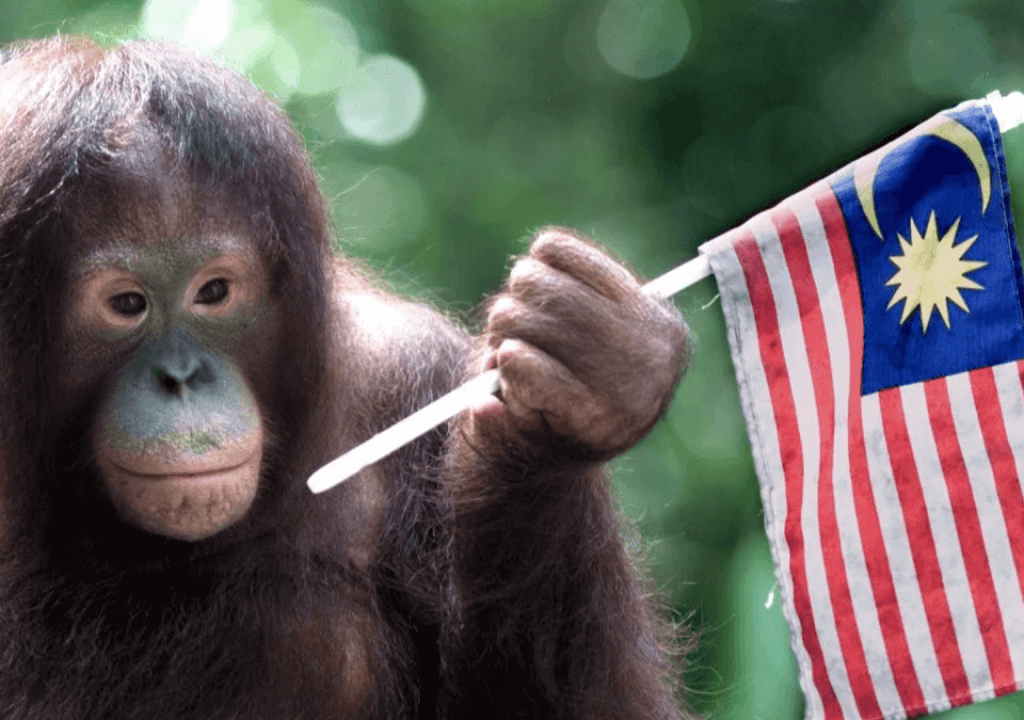The tradition of exchanging animals as part of friendship has been observed by many countries in the past. However, China transformed this practice into a continuous diplomatic strategy. Panda diplomacy, the act of sending adorable, giant pandas from China to other countries for diplomacy and wildlife conservation purposes, serves as a strategy to demonstrate their appreciation for friendships and their dedication to nature preservation. Panda diplomacy catches the news headlines because of the exceptional rarity of the species, fascination that pandas evoke. Now, Malaysia, a country heavily criticized for its deforestation for large-scale palm cultivation, is also adopting China’s strategy to demonstrate its commitment to nature. Although Malaysia doesn’t have pandas, they possess another rare species, the orangutan.
Malaysia faces pressure from the EU, one of its largest trade partners, which last year approved an import ban on commodities linked to deforestation. The action will severely impact the Malaysian economy, which relies on palm oil exportation. Malaysia criticized the law as discriminatory and began working with states that are consumers of their palm oil to reduce obstacles and continue trade. Thus, Malaysia adopted a strategy widely known as orangutan diplomacy, as it plans to give orangutans as gifts to countries that buy its palm oil to ease concerns over the environmental impact of the commodity. This commodity is prevalent in more than half of supermarkets from food to cosmetics. Over the years, media and environmental workers have accused the global demand for palm oil of fueling deforestation in Malaysia and neighboring Indonesia. According to Malaysia’s Plantations and Commodities Minister, Johari Abdul Ghani, the act of gifting the rare species orangutans to trading partners such as the EU, China, and India would demonstrate Malaysia’s commitment to biodiversity conservation to the global community. He emphasized that the country could not take a defensive approach to the issue of palm oil. Instead, they need to show the world that Malaysia is a sustainable oil palm producer committed to protecting forests and environmental sustainability.
The Bornean orangutan, which is endemic to the island of Borneo, is listed as critically endangered by the International Union for Conservation of Nature, akin to Giant Pandas in China. Besides Malaysia’s part of the Borneo island, orangutans are visible in the Indonesian part of Borneo and Sumatra. The numbers of orangutans are noted to be decreasing while the governments of Malaysia and Indonesia make efforts to conserve them. As the threat orangutans face from the shrinking of their natural habitats, rainforests, wildlife organizations have taken different stances on Orangutan diplomacy. Many have called on the Malaysian government to consider other ways to signal its commitment to protecting the species. On the other hand, many welcomed the government’s commitment to supporting coexistence with Malaysian wildlife, believing it will be a success like the panda diplomacy model, which has successfully promoted the conservation of species. Panda diplomacy led the species to be a talking point in western nations, and funds were raised for saving pandas from extinction. The Chinese government started to work more for their ambassador, and western nations also looked to support the preservation of Giant Pandas. Many wildlife conservators believe that through orangutan diplomacy, the problems facing orangutans will come into the spotlight, and the Malaysian government will work more for orangutan conservation.
Palm oil holds significant importance in the Malaysian economy, serving as the cheap and widely available cooking oil in India and Pakistan, and used in food and cosmetics across Europe and the Americas, and even as biofuel in some countries, making it an indispensable commodity. Malaysia’s palm oil cultivation extends over roughly 5,000,000 hectares (19,000 square miles) of land, which was once forested. In light of concerns regarding deforestation, the Malaysian government pledged to curb the expansion of palm oil plantations by ensuring that at least half of the nation’s land remains covered by forests. Nonetheless, this effort faces significant challenges, particularly with rising demand leading to the expansion of plantations in Indonesia, and subsequent deforestation in Indonesia. The rainforests of both these countries are crucial for the world, and their loss would considerably impact global climate patterns. Therefore, reducing the usage of Palm oil is the strategy evolved to reduce the reliance on Palm oil, with the European Union leading this effort, which will likely extend to the USA and many other countries.
However, it’s clear any regulation will significantly impact the Malaysian economy. In this context, Malaysia, seeking to continue in the European market and others, is demonstrating its dedication to nature and wildlife conservation through Orangutan diplomacy. By showcasing their commitment to nature, they expect to retain the market with them. Therefore, the Malaysian government’s Orangutan diplomacy will contribute to preserving the Malaysian economy and wildlife simultaneously.








